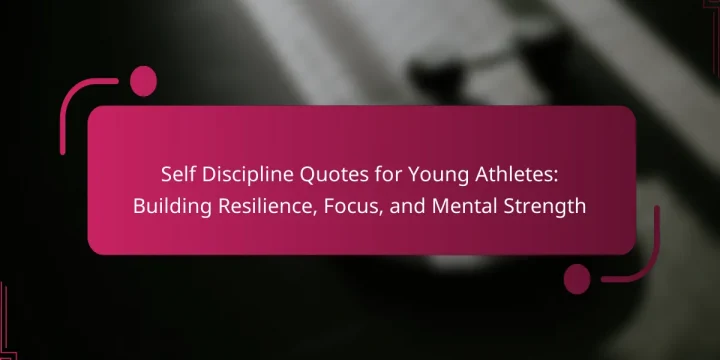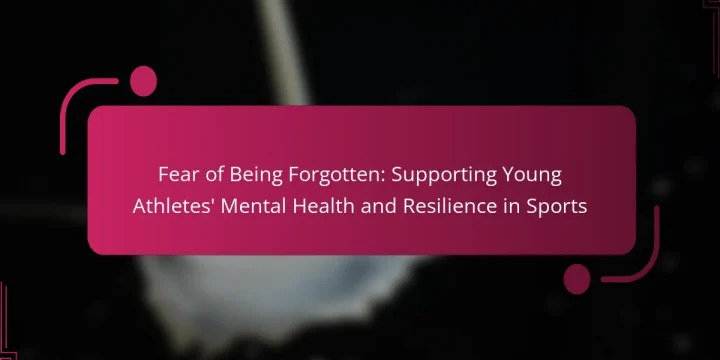
Self-discipline quotes are essential for young athletes, helping them build resilience, focus, and mental strength. These motivational tools inspire perseverance and reinforce the importance of consistent practice. Effective quotes enhance performance through goal-setting and daily affirmations. Incorporating these quotes into training routines fosters accountability and a positive mindset, ultimately supporting long-term athletic and personal growth. What role do self-discipline quotes play in youth sports? Self-discipline quotes play a crucial role in youth sports by fostering resilience, focus, and mental strength. These quotes serve as motivational tools, inspiring young athletes to persevere through challenges. For example, quotes emphasizing hard work and determination can reinforce the importance of consistent practice and effort. Research shows that positive affirmations enhance performance and help athletes maintain a growth mindset. Incorporating self-discipline quotes into training routines…







